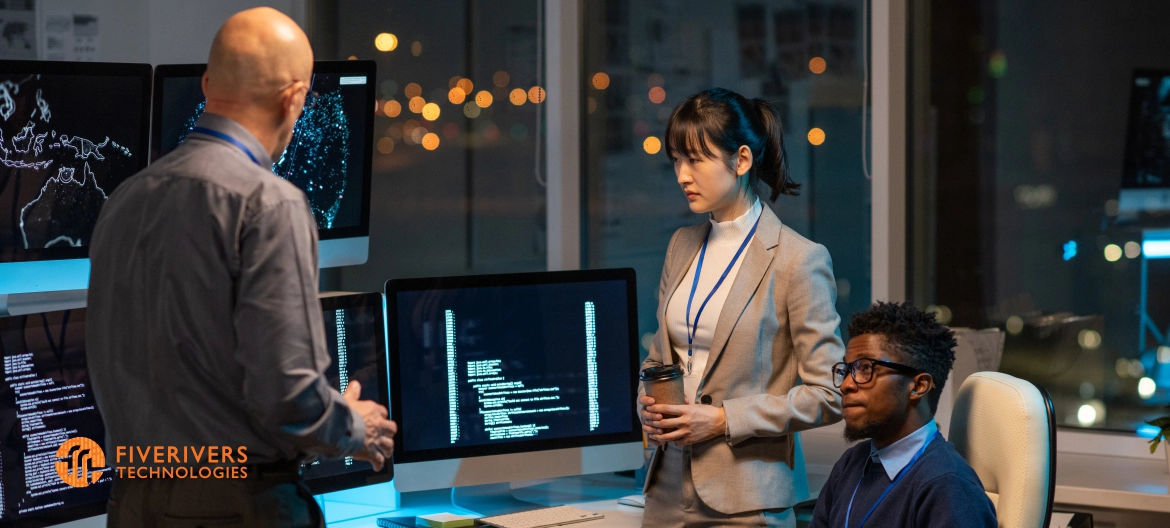As ChatGPT and Bard AI have taken the world by storm, IT sector workers, particularly software engineers, want to know what their advent would mean for jobs. Will AI's ability to write code replace programmers and software engineers?
This guide will answer this burning question and clarify this issue.
Can AI Replace Software Engineers?
To get straight to the point, generative AI will not replace software engineers yet. For this statement to make any sense, first, we need to know what generative AI is and what it can do that has software engineers around the world on edge.
Generative AI can create text, images, videos, and other media types with a single or a few prompts. These systems can also create songs, pictures, voice-overs, and even write code from a prompt. A few instances of generative AI include Bard, Dall-E, and ChatGPT.
All these generative AI systems mentioned above leverage machine learning techniques, specifically some variants of a Transformer model, to understand and generate content. These systems' models are trained on a variety of data sources. For example, ChatGPT is trained on various texts on the internet.
These systems are amazing, but they are not without restrictions. To begin with, they require human guidance to choose what actions to do and what code to create.
Also, generative AI can create large-scale software projects despite being unable to write code. For example, ChatGPT can produce a code for an essential music streaming app but cannot create a fully functional music app like Spotify or YouTube Music. Furthermore, generative AI frequently generates flawed or erroneous code. So, eventually, a human must review the code to ensure it is correct.
With such limitations, generative AI could not replace software engineers now. It could, however, result in fewer software jobs. That is because many software engineers and engineering managers are now leveraging AI tools like Microsoft Copilot to help them design logic and write code, thus making them more productive.
So, if engineers become more productive using AI tools, then companies would have to hire fewer engineers and pursue more ambitious projects.
Another reason why generative AI isn't likely to replace programmers and software engineers is its inability to understand abstract concepts and the nuances of human languages. They are not able to invent as people are, make moral judgments, or think about how a piece of software will affect society. So, generative AI can be a powerful tool to help programmers automate specific tasks and improve productivity, but it's not likely for software engineers.
What Challenges Does Generative AI Present to Programmers?
The caliber and consistency of the content that generative AI generates is one of the main problems that programmers face. AI models can produce inappropriate outputs because they need to understand the context and nuances humans possess.
Programmers also must deal with the moral and legal ramifications of content created by artificial intelligence. Deepfakes, disinformation, and copyright infringement are among the problems that are arising with the growth of generative AI.
The third challenge is that these AI models require large data sets and computational resources, which can be a problem for smaller organizations.
Moreover, "mode collapse" is another challenge programmers must cope with. This happens when AI fails to generate diverse outputs but continues to create similar outputs.
These challenges highlight the fact that generative AI needs to be researched more and should be implemented carefully.
What Could Replace Programmers?
To replace software engineers, AI needs creativity, problem-solving skills, and contextual understanding equal to or surpassing humans. Therefore, programmers are only replaceable when artificial general intelligence (AGI) is developed.
AI general intelligence is described by IBM as "intelligent machines indistinguishable from the human mind." But artificial general intelligence is theoretical. No one knows whether it's possible to create AIG.
But many experts have the opinion that it's possible. In a poll, 352 artificial intelligence professionals were asked when they believed there would be a 50% possibility that humans will develop AGI. The study was done by Ourworldindata.org. Ninety percent of the experts selected a date within the next 100 years, and half of them stated before 2061.
Though fascinating, the idea of building computers smarter than humans has ethical, social, and technological challenges. How, for example, can we make sure that AGI is cognizant of human morality and values? How can we stop such potent technology from being abused?
Technical advances in comprehending and simulating the intricacies of the human mind are now necessary to tackle the enormous problem of building artificial general intelligence (AGI). Furthermore, there is now speculation on when AGI will be achieved.
Final Word
Programming is, at its core, all about logical reasoning and problem-solving, with coding being a tool programmers must use. However, it is undeniable that the development of generative AI has altered the way programmers create code by enabling a certain amount of efficiency and automation.
So, again, answering the question: will AI replace programmers? No, because AI cannot replace the human part of software engineering—the capacity for comprehension, creativity, and adaptation—the position of programmers remains safe.

